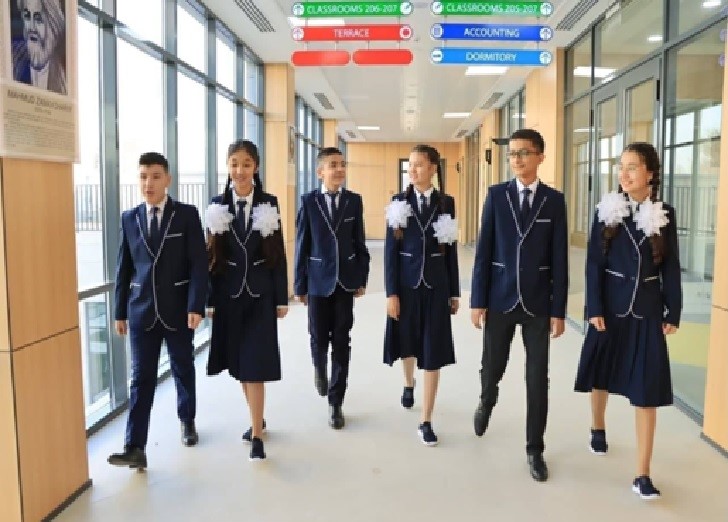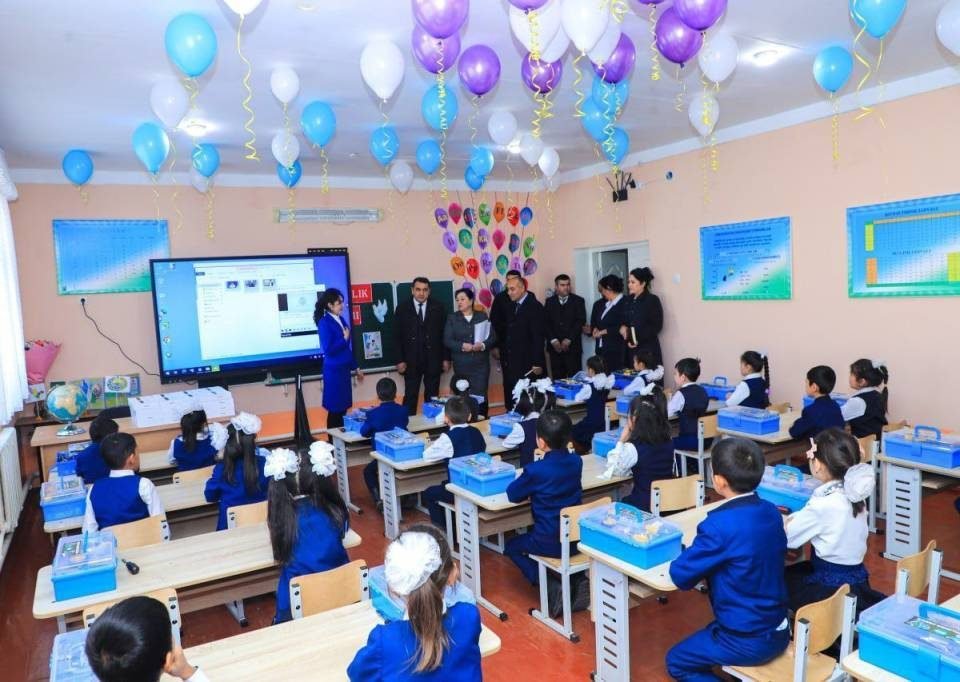 Today a program is being elaborated in Uzbekistan designed to promote active reading among the population. As it is known, training to read is more effective when it starts fr om early childhood. However, as the conversation between social network users and the director of the Republican Children’s Library Doniyor Uralov has shown, there are many issues that need to be addressed along the way.
Today a program is being elaborated in Uzbekistan designed to promote active reading among the population. As it is known, training to read is more effective when it starts fr om early childhood. However, as the conversation between social network users and the director of the Republican Children’s Library Doniyor Uralov has shown, there are many issues that need to be addressed along the way.
As a part of the project social network users raised the issue of publication of books for children. It was noted that there are special children’s books in the world different in paper quality – it is more durable, and they talked about the new trends, namely, 3D-books. The social network users also pointed out that in our market the books published by domestic publishing houses for this category of readers are not practically available, and foreign products are not cheap.
Commenting the situation, Doniyor Uralov admitted that there are certain problems in this area so far and stressed that they are solved. Just a few months ago, one of the leading national publishers introduced the first domestic 3D-children’s books. “I think in the near future our publishers will be able to put this work on a line. Developed program aimed at promoting the reading will conduce this”, the expert of the project concluded.
In the meantime, we can manage with those children’s books that are available in our bookstores, the expert considers and recommends: “Read aloud to children, examine the book with pictures, and it certainly will not pass without a trace, it is sure that a sense of love for books will be cultivated in your child.”
Another tip for parents was the recommendation of the new magazine, “Bolalar Adabiyoti”, published last year by the Republican Children’s Library. It is interesting because it is not only very colorfully decorated, but also has an application on CD-ROM ефре contains voice recording of the works published in the latest issue of the magazine.
The conducted dialogue did not evade the question on the library cooperation in its classic sense with the modern Internet technology. Social networks users have rightly noted that today’s young people are engrossed in social networks and Internet sites. On the Internet there are quite a lot of resources wh ere you can download any book. In this context, the project participants were interested in the future of libraries what should be done in order to correspond them with the current requirements.
Considering the problem, Doniyor Uralov drew attention to the following facts: “When the TV was invented, they said that the theater will disappear. However, it has not been the case with so many years passed. Of course, there are fewer visitors in the theaters, but, nevertheless, they have their fans. Even inveterate fans sit in front of TV screens at home, and they also go to the theater. Moreover, theater, cinema and television are interrelated, especially with the people who work there. The analogy can be carried out regarding the libraries. Yes, the online library is more convenient, they have taken a large part of the audience. This is particularly felt in the children’s library, because today it is difficult to find a house in which there would be no Internet, and as you know, the children own the computers better than adults. But on other hand, the libraries run a new function; today we are all involved in the creation of digital libraries through the digitization of funds, placing them in new editions. In particular, the full-text electronic versions of books you can find on www.kitob.uz, the web-site of our library.
Moreover, the director of the Republican Children’s Library spoke about the fact that today the online resources are used for dialogue with readers and popularization of reading among children. In particular, for several years www.kitob.uz has been conducting meetings with well-known children’s writers and actors in which young readers ask our guests questions and take answers to them through the Internet technologies. Those wishing to take part are so many that an allotted hour is not always enough. The library has its own channel in the Telegram through which users are notified on the planned events. I am glad that the number of subscribers is growing.
During the dialogue it is felt the desire of social network users to reproach the library for its archaism and lack of demand. There were even those who rebuked the library director for that today they have dropped out of sight of the media. However, talking to Doniyor Uralov, they came to the conclusion that the library is alive and in demand:
“Last week we celebrated birthday anniversaries of Navoi and Bobur. In connection with these dates we conducted events involving children from kindergartens and schools, they read poems and played staging. And these events were traditionally covered by the media. Journalists are our frequent visitors, many of them have even become our partners,” Uralov said. “I want to emphasize that we are always trying to find new things in the work with the media. Here, in particular, we are now working on a children’s TV show in the form of a game show which should contribute to the promotion of reading.”

























